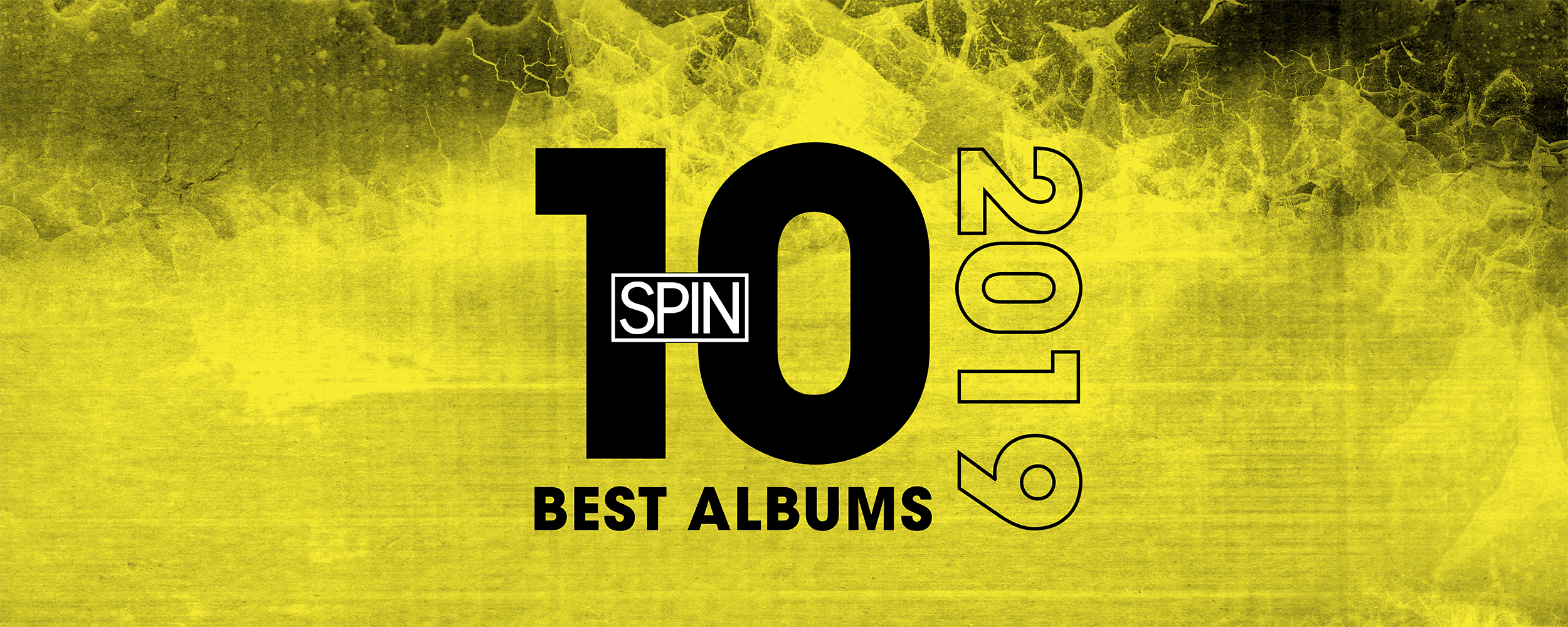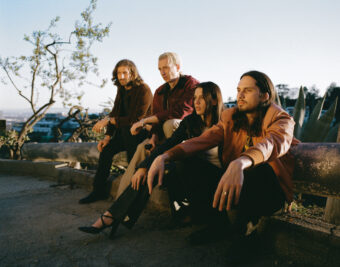In 2019, the musical landscape was as fractured and multifarious as the world around it. The best albums of the year didn’t fit neatly along any one major narrative line, but if you peruse our list below, you might find a few patterns.
Rather than traveling the safe route and repeating past successes, art-pop singer-songwriter-auteurs such as Lana Del Rey, FKA twigs, and Angel Olsen took the risk of going big, considerably increasing the scale and ambition of their work, and releasing what were arguably the finest albums of their careers. Far-flung acts including Black Midi in the U.K., Bill Orcutt in the U.S., and Mdou Moctar in Niger showed that here are still plenty of thrilling and original sounds to be wrung from our old friend the electric guitar, whether inside or outside the context of rock music. Big Thief were a story unto themselves, releasing two instant classics within a few months of each other.
But perhaps the defining characteristic of this list is loss, as it contains two final missives from brilliant artists who died in middle age: masters of their respective crafts who still fearlessly plumbed new depths, veterans who also seemed to be only getting started. They may be gone, but the music is still here.
These are the best albums of 2019.
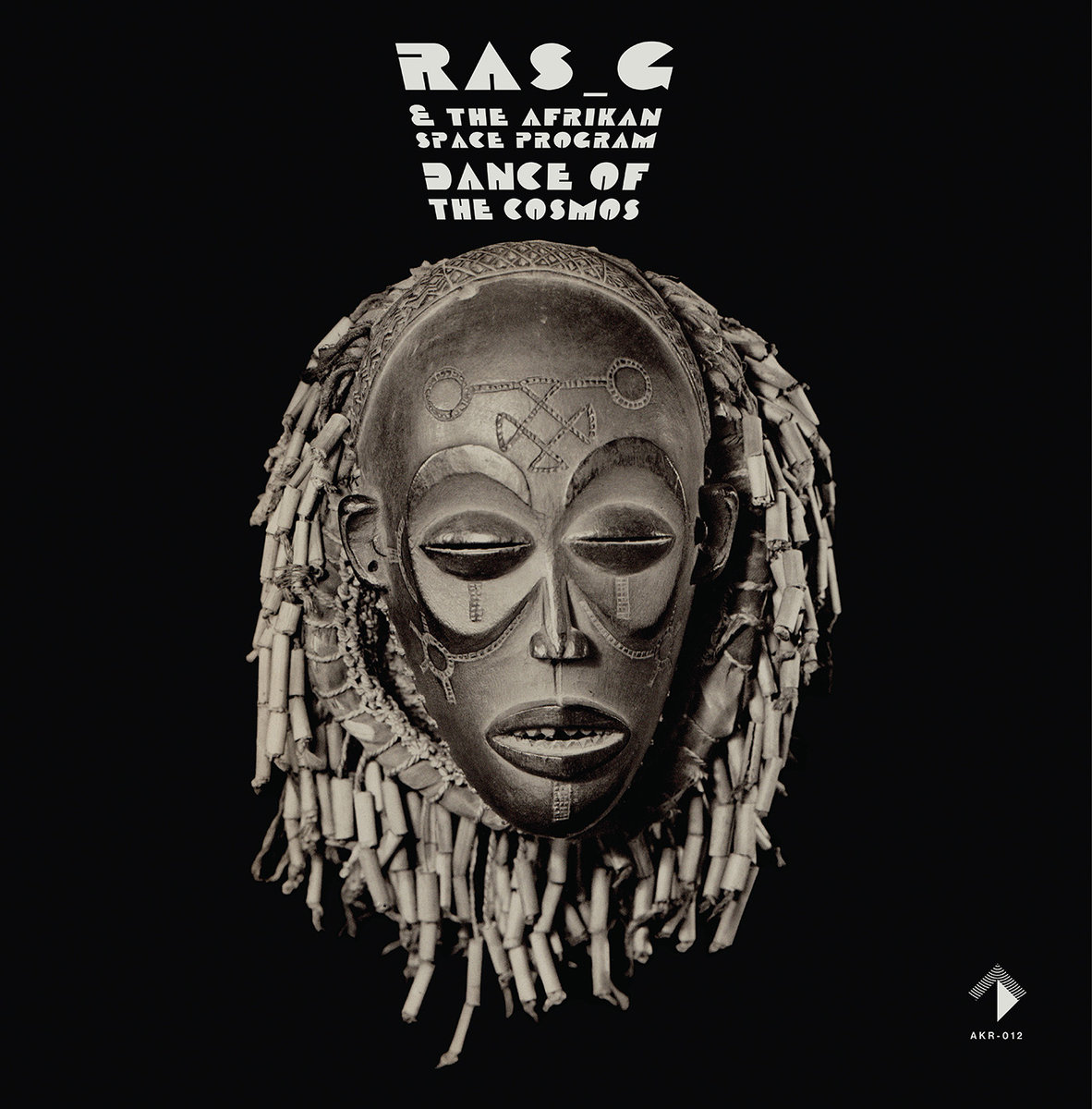
10. Ras G
Dance of the Cosmos
Ras G’s death hit Los Angeles like a hammer smashing vinyl, not least because he had so much music left to share. Dance of the Cosmos, released five months before Ras died at age 40 this summer, finds the relentlessly prolific producer and patriarch of the L.A. underground exploring house music at length for the first time. He loops rattles, shakers, marimba, and chopped-up poems alongside kicks and claps; grooves stretch and swell in ways that he never allowed his restless hip-hop-oriented beats. The result feels like a sacred dance circle. Upon release, it seemed like a new frontier: the swingiest of the city’s beat scenesters shifting his focus from listeners’ heads to their hips.
It’s clear that Ras was pondering his work’s legacy and meaning. Two Cosmos tracks sample Yusef Iman’s introduction to a 1971 set by James Mtume’s Umoja Ensemble: “What you’re about to hear is not jazz or some other irrelevant term we allow others to use in defining our creation, but … the continuing process of nationalist consciousness manifesting its message within the context of one of our strongest natural resources: black music.” The portion on “Long Gone” goes: “Black music will survive and grow simply because black people will survive and grow.” Every Ras G tribute set I heard this year included it. —TOSTEN BURKS
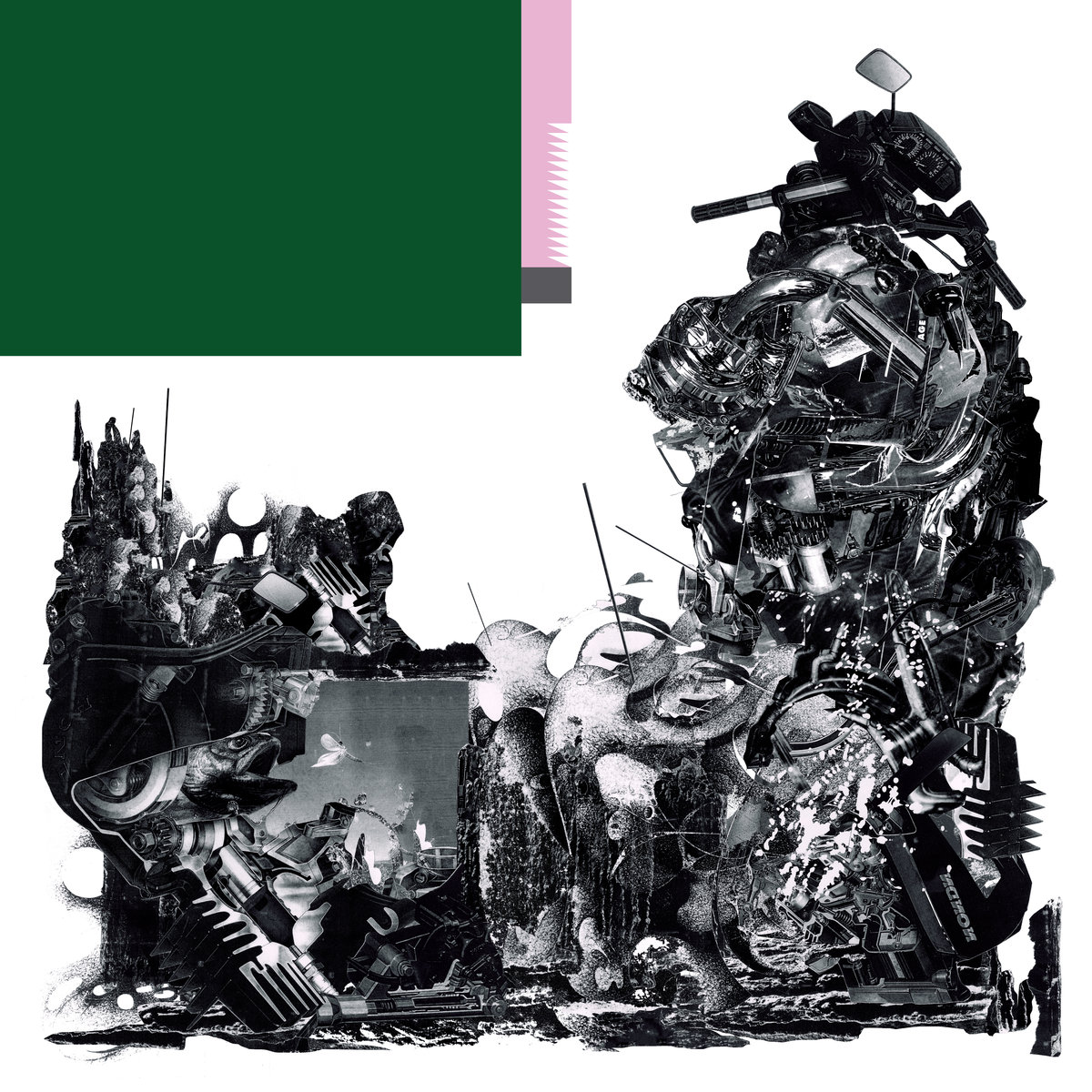
9. Black Midi
Schlagenheim
Geordie Greep of the London-based art-punk band Black Midi has the haircut of a prep school asshole and the voice of a cartoon supervillain. On Schlagenheim, the group’s debut, his vocal cadences are calculated and arch, unrushed, until they inevitably accelerate toward mania.
On “bmbmbm,” over thin shrieks and a frayed, hypnotic pulse of a guitar line, he begins coolly: “She moves with a purpose.” Over the course of four minutes, he repeats the phrase in increasingly urgent variations, and eventually comes completely unhinged, screaming about a “magnificent purpose” over an explosion of guitar and percussion. Morgan Simpson’s drumming is the violent, liquid mass lurking behind Greep’s Captain Ahab: lithe, and technically astounding. The coked-up fantasy of “Western” elevates a petty grudge to the level of myth, with inscrutable lyrics about a “pink caterpillar with six anorexic children” and a “hole that’s black perpetually.” “Ducter,” blustery and propulsive, is similarly affected, and just as compelling.
Anchored by those maniac vocals, Schlagenheim is spiky, chaotic, and brutally exhilarating—the sound a young band with almost impossibly broad horizons. —WILL GOTTSEGEN
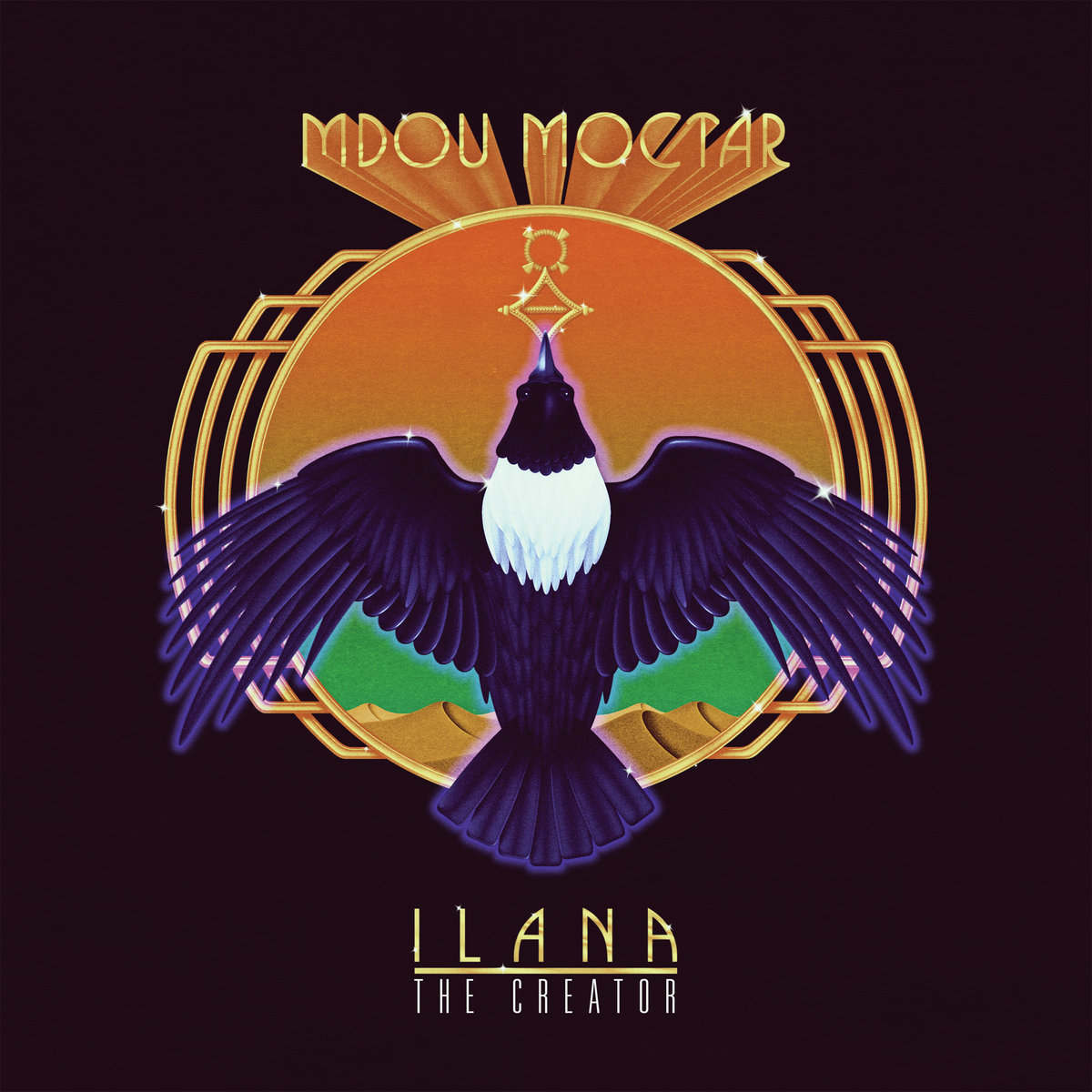
8. Mdou Moctar
Ilana: The Creator
In Niger, cell phones with data connections are more readily available than running water. Enterprising musicians trade MP3 files from cell phone to cell phone, amassing vast collections of recorded audio from around the world. Virtuosic performances once limited to local weddings and festivals now travel through Facebook, WhatsApp, and YouTube, paving the way for a new kind of viral Tuareg superstar: Mdou Moctar, a veil-wearing, Prince-loving guitar god from the city of Agadez. Ilana: The Creator, Moctar’s first official album with a live band, is a dense listen, as steeped in the language of American psych-rock as it is in Tuareg guitar music. Songs such as “Asshet Akal” and “Tarhatazed” refract the riffs of Led Zeppelin and Black Sabbath through complex arrangements present in Tuareg music since at least the ichumar protest songs of the 1990s.
While political dissent isn’t quite as central to Mdou Moctar’s message as it was to musical forebears like Tinariwen, the guitarist and songwriter has been an outspoken critic of France’s postcolonial relationship with Niger, going as far as to call the Nigerien people “modern slaves” in a recent interview. The very same conflict minerals that make West Africa’s music networks (and Mdou Moctar’s burgeoning international celebrity) even possible are built on fundamental inequalities of global capitalism, an irony not lost on the musician in his compositions. “Ilana,” the album’s eighth song and title track, is an extended meditation on the “suffering of women in the desert.” Many of the album’s sharpest lyrics draw attention to challenges that are largely invisible to Americans by design. Still, Ilana: The Creator isn’t just an album of heady critical concerns, and always keeps Moctar’s breathtaking guitar-playing as its focal point. Whether you’re here for face-melting solos or pointed political critique, no one does either quite like him. —ROB ARCAND
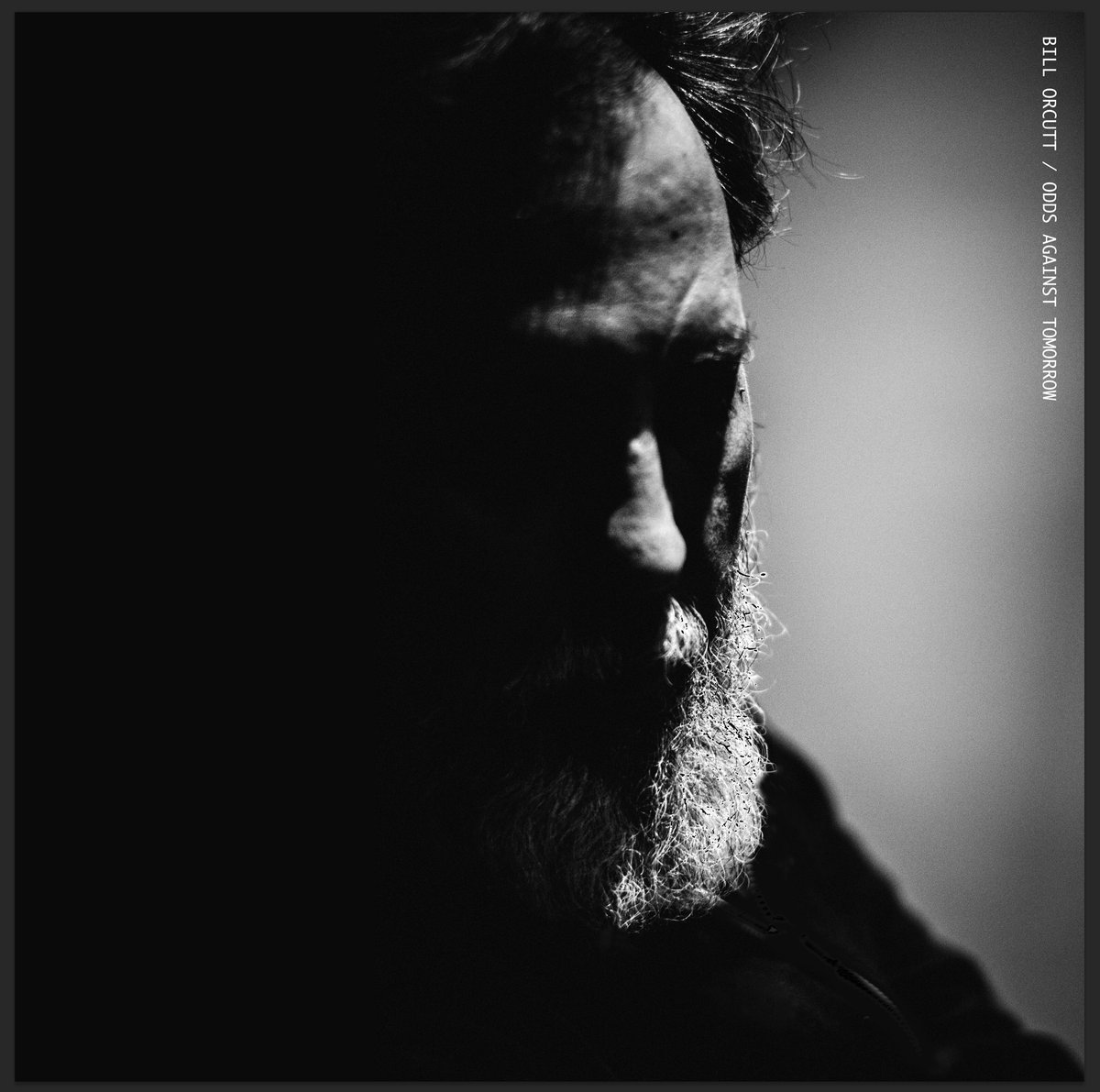
7. Bill Orcutt
Odds Against Tomorrow
Whether solo or as a member of an ensemble, playing the fractured guitar music and experimental electronics that have defined his output for the last decade or the howling punk squall of his ‘90s band Harry Pussy, Bill Orcutt does not generally make music for the faint of heart. On Odds Against Tomorrow, he puts down his faithful acoustic guitar and picks up an electric, dials back the intensity only slightly, and comes up with the most straightforwardly beautiful sounds of his career so far. To find a point of comparison for an earlier album like 2009’s A New Way to Pay Old Debts, you might reach for some gnarled contemporary sculpture before you considered any particular piece of non-Bill Orcutt music, so idiosyncratic and viscerally tactile were its brittle knots of guitar. That dense and dissonant quality is still here, but it appears sparingly, in moments of exhilarating climax across compositions that are otherwise lyrical and clear. The music often begins with stillness and moves gradually toward frenzy, without ever changing its essential character: The quiet moments are subtly ferocious, and the peaks are tranquil as well as ecstatic. Odds Against Tomorrow is generous but uncompromising, and transfixing from the first note onward, presenting a master at the height of his practice. —ANDY CUSH
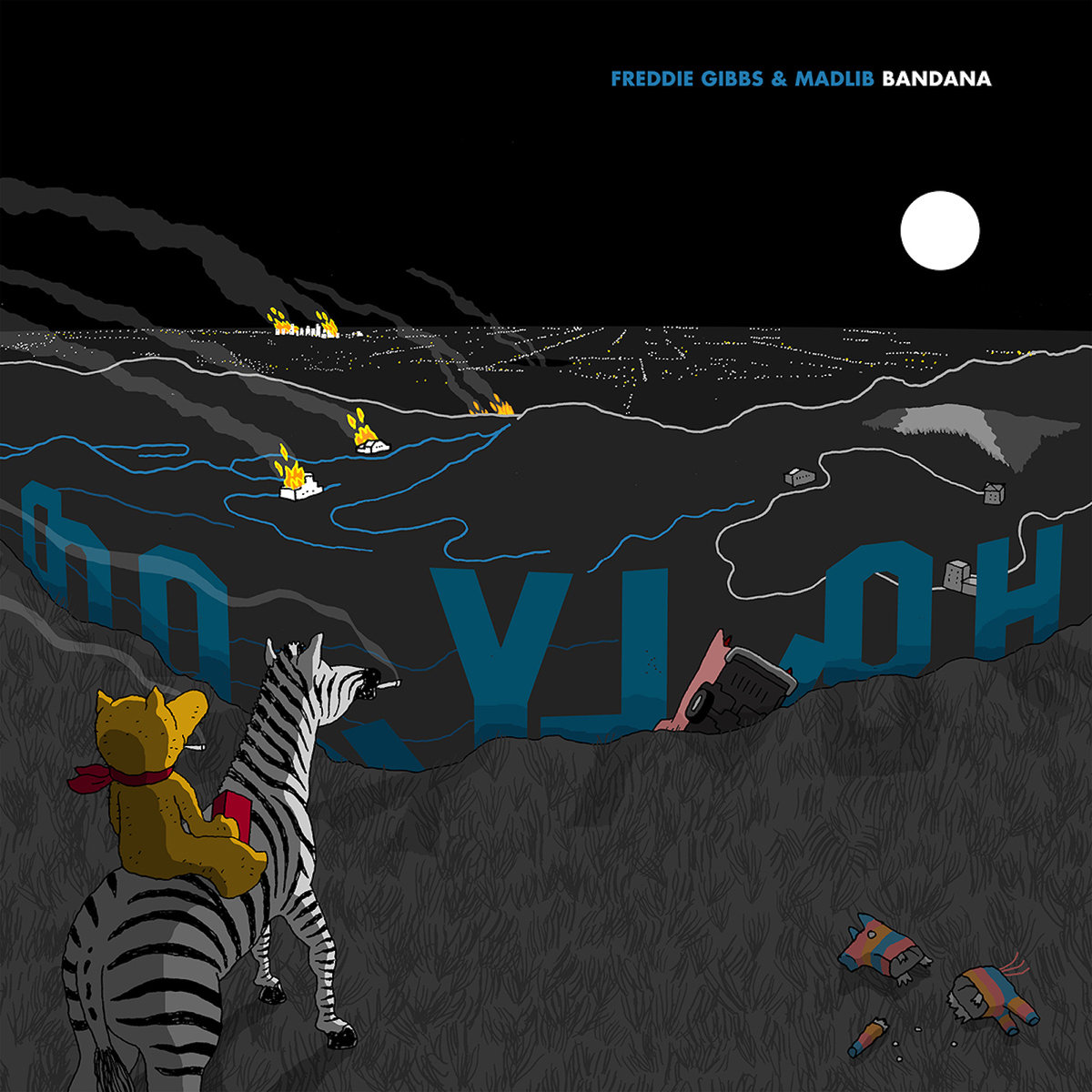
6. Freddie Gibbs / Madlib
Bandana
We could talk about Freddie Gibbs’s breath control on the second “Situations” verse, or Madlib’s beat flips on “Half Manne Half Cocaine” and “Fake Names,” but this duo’s technical virtuosity goes without saying. Their second album is one of the best of the year because of the surprising things they do with that virtuosity. Madlib engineers the vocals—with odd layering and spots of metallic sheen—as playfully as he has anyone’s since the Quasimoto days. And Gibbs takes big political swings.
For all Bandana’s vivid cocaine memories and NBA punchlines, the album’s soul is in songs such as “Flat Tummy Tea” and “Palmolive,” wherein Freddie frames his story against history: “America was the name of they fuckin’ company / Stackin’ n*ggas like cargo over and under me”; “Fuck the forty acres and the mule / They gave us n*ggas the evils / Hot pots, spoons, and needles.” If the scope of Bandana’s drug-dealing treatise isn’t clear by the end, “Soul Right,” the final track, makes it explicit: a curse for Oklahoma killer cop Betty Shelby, a dystopian scene of violence carried out by police robots, a sung prayer to close things out. This is the rare sequel that tops the original. —TOSTEN BURKS
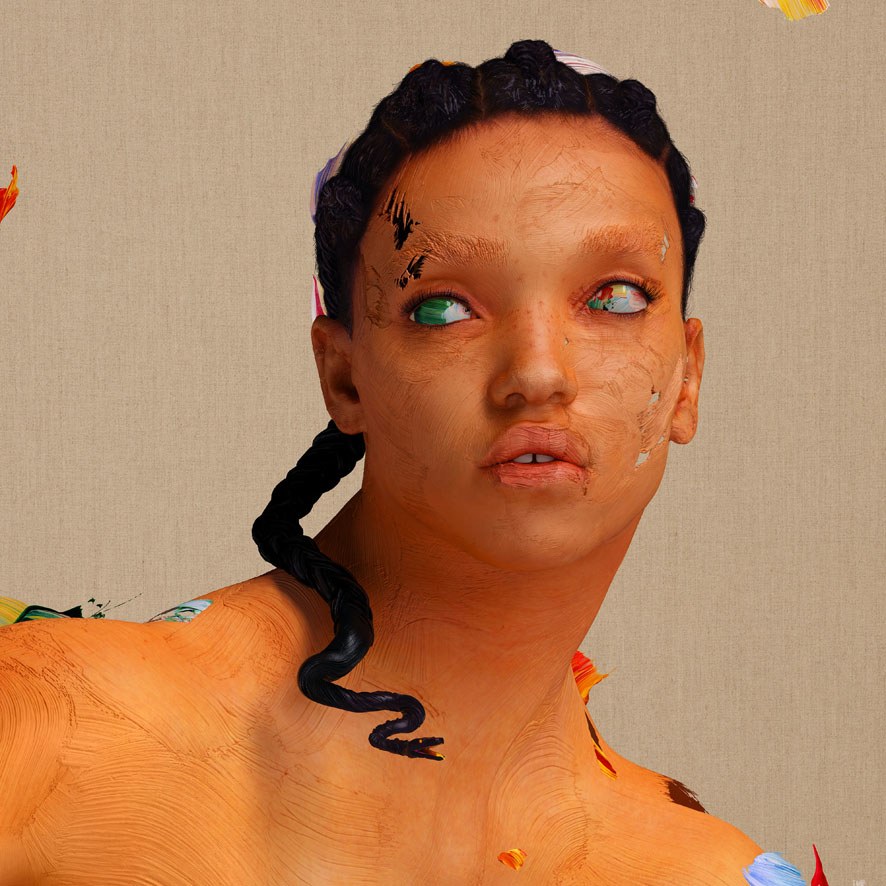
5. FKA twigs
Magdalene
Drawing inspiration from her 2017 breakup with actor Robert Pattinson, FKA twigs’ sophomore album is a stirring exploration of heartbreak and tabloid-press paranoia reflected through the biblical motif of Mary Magdalene. The singer’s first full-length LP in five years enlists an all-star production outfit—including Nicolas Jaar, Skrillex, Cashmere Cat and Benny Blanco—to conjure up an otherworldly backdrop to twigs’ most conceptually ambitious songwriting to date.
Magdalene’s visual language is as distinct as the music itself, characterized by delicately choreographed pole dancing and swordplay in its videos and performances. Such theatrical flourishes might feel like gimmicks for a lesser artist, but here they cede the spotlight to twigs’ rare ability to alchemize empathy with melodic sensibility. Her trademark falsetto hits new emotional heights on “Home With You,” whose contrite chorus presages the haunting “Sad Day” and the allegory-steeped “Mary Magdalene” in the album’s first half. On the sublime closer “Cellophane,” twigs’ tortured delivery renders the lyrics devastating in their simplicity: “Why won’t you do it for me? When all I do is for you?” Even the otherwise-muted “Mirrored Heart” draws cheers in concert for its starkly relatable line, “It’s all for the lovers trying to fuck away the pain.” We’ve all been there before, but it seldom sounds this stunning. —MATT MEDVED
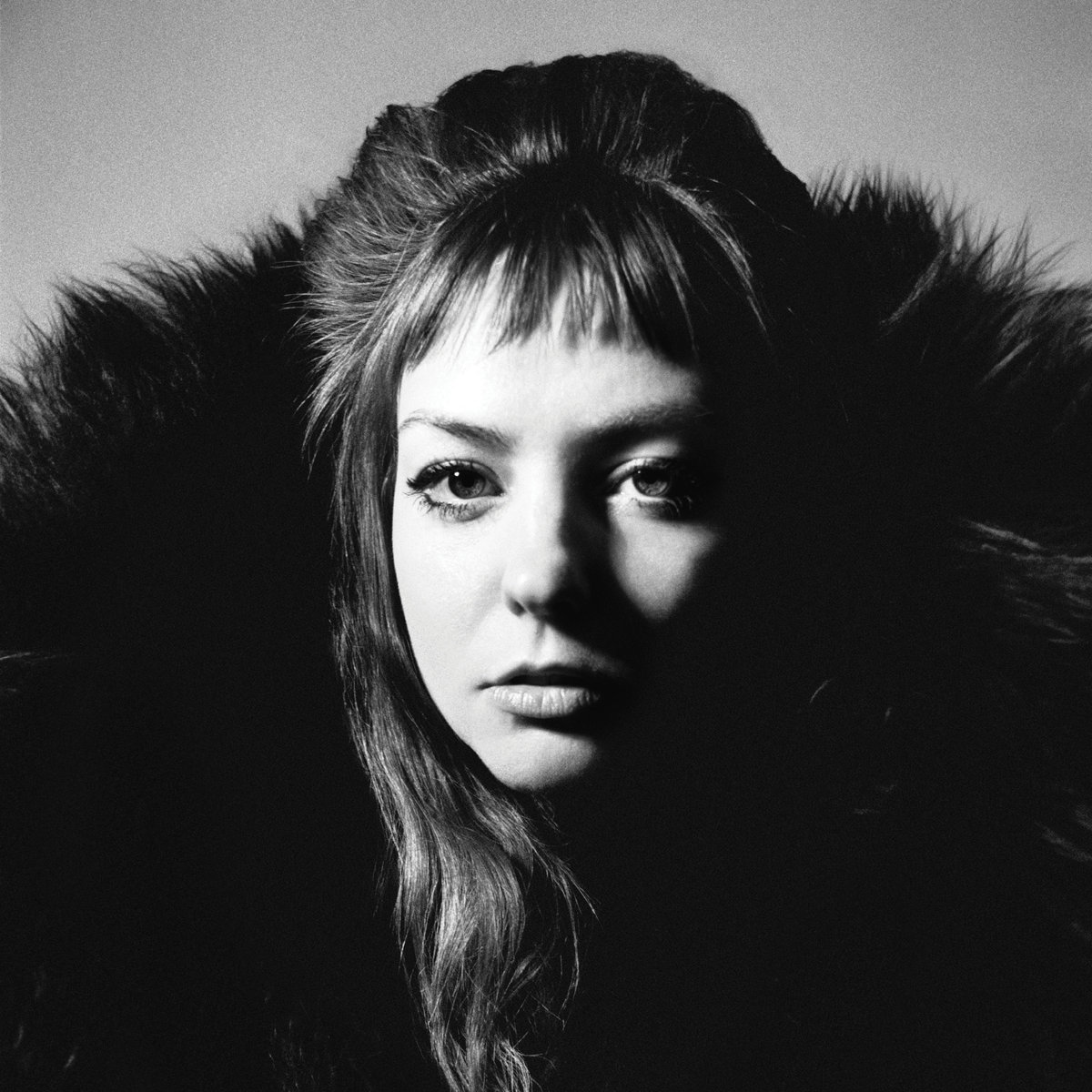
4. Angel Olsen
All Mirrors
Angel Olsen has a voice of near-frightening expressionistic power. It’s been there since her earliest recordings, conveying inner darkness and ecstasy that plain speech would struggle to describe. A quake of vibrato announces a new rift along the fault lines between two lovers. A break into the glassy high register arrives like a shaft of light through a window into memory’s dusty old rooms. Past albums derived their power in part from the tension between this unearthly instrument and musical settings that were otherwise fairly straightforward and recognizable, whether the gothic indie folk of her 2012 debut Half Way Home or the glammy ‘70s-style rock of 2016’s spectacular My Woman.
For the first time on her fourth album, All Mirrors, the music is as strange and sweeping as the singing. Olsen and her collaborators, which included a 14-piece orchestra, constructed dizzying rococo edifices of strings and electronics around her songs, which take place mostly in the aftermath of a long relationship. Synthesizing elements of 20th century classical music, pre-rock melodramatic balladry, and sleek contemporary pop, All Mirrors frames heartbreak and ennui in mythological proportions.
Olsen completed All Mirrors after recording a separate acoustic version of the album. It’s difficult to imagine what this early iteration must have sounded like, so holistically do the orchestrations of the finished All Mirrors emerge from the core of the material. The emotional arc of the writing seems to dictate the form of the compositions: the symphonic sprawl of opener “Lark;” the warped synthpop of “New Love Cassette,” which builds to an indelible Mobius strip of a melody, then ends before you register what you’re hearing as the chorus. The accompaniment often serves not to simply heighten the feeling of the lyrics, but to interject, undercut, illuminate possible subtext, bend the feeling in new directions, splash it with an unexpected shade. A particularly striking moment comes halfway through “What It Is,” after Olsen has castigated an ex: “You just wanted to forget / That your love was full of shit.” The strings, which so far have offered a picture of stately restraint, suddenly dive-bomb and flail in the air, as if the music itself is pointing and laughing at the guy. This push-pull between setting and subject makes All Mirrors Olsen’s most ambitious and original work yet. The sounds reflect the songs, but not always faithfully; like all mirrors, they only show you what you’re willing to see. —ANDY CUSH
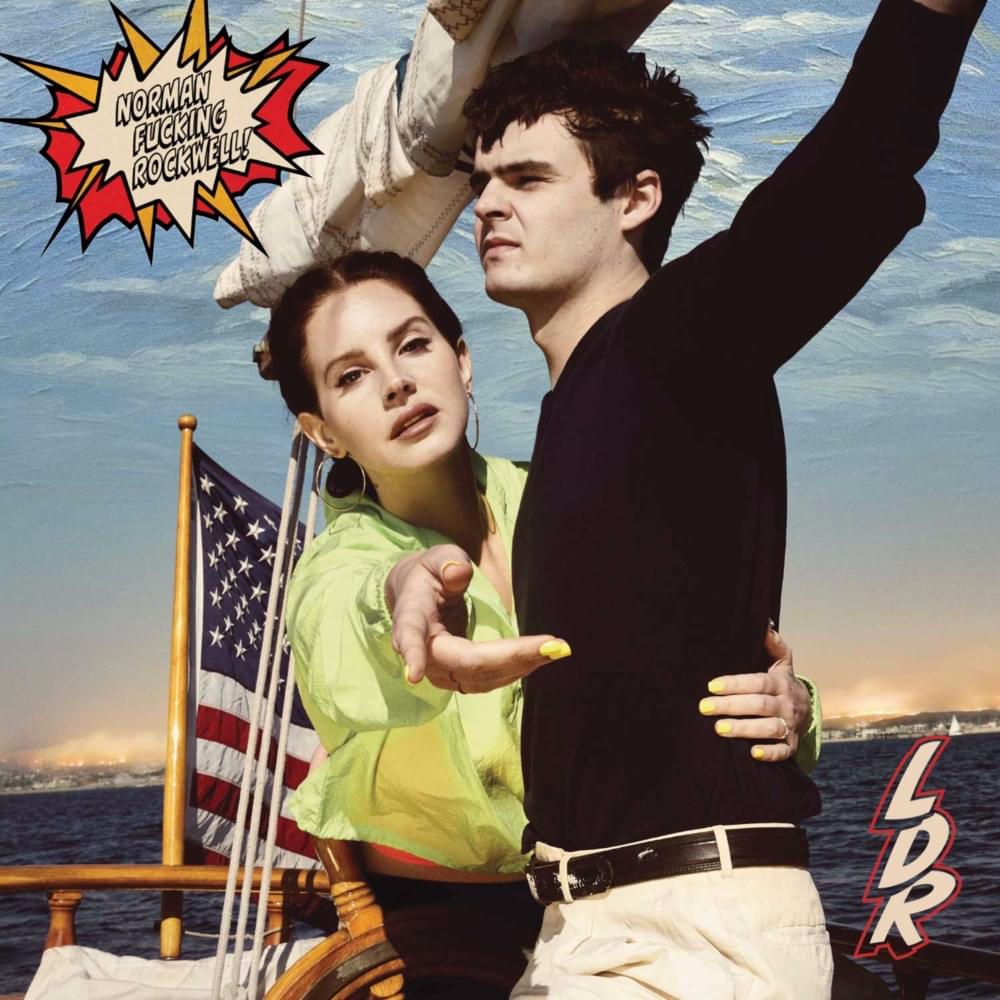
3. Lana Del Rey
Norman Fucking Rockwell!
On her fifth and most thrilling studio album, Lana Del Rey establishes herself as a masterful architect, building intricate environments within each song. The world of Norman Fucking Rockwell! is seductively dark, complex, and disillusioning, an incisive criticism of the American Dream as interpreted through the prism of Del Rey’s throwback mid-century Hollywood glamazon sensibilities. If Lana Del Rey didn’t exist, David Lynch would have to invent her. Fortunately, Lizzy Grant beat him to the punch.
Del Rey’s slightly psychedelic journey through the ‘60s and ‘70s Laurel Canyon folk scene is augmented by sly, period-appropriate allusions to John Lennon and Yoko Ono’s “War Is Over (If You Want It)” and the drowning of The Beach Boys’ Dennis Wilson. Never one to be pigeonholed, Del Rey tosses in a remarkably straight-faced and legitimately enchanting cover of ‘90s SoCo bro band Sublime’s “Doin’ Time,” and takes a wry shot at Kanye West’s MAGA heel turn with the throwaway line describing the emcee as “blond and gone.” Never let it be said that she doesn’t have a sense of humor. —MAGGIE SEROTA
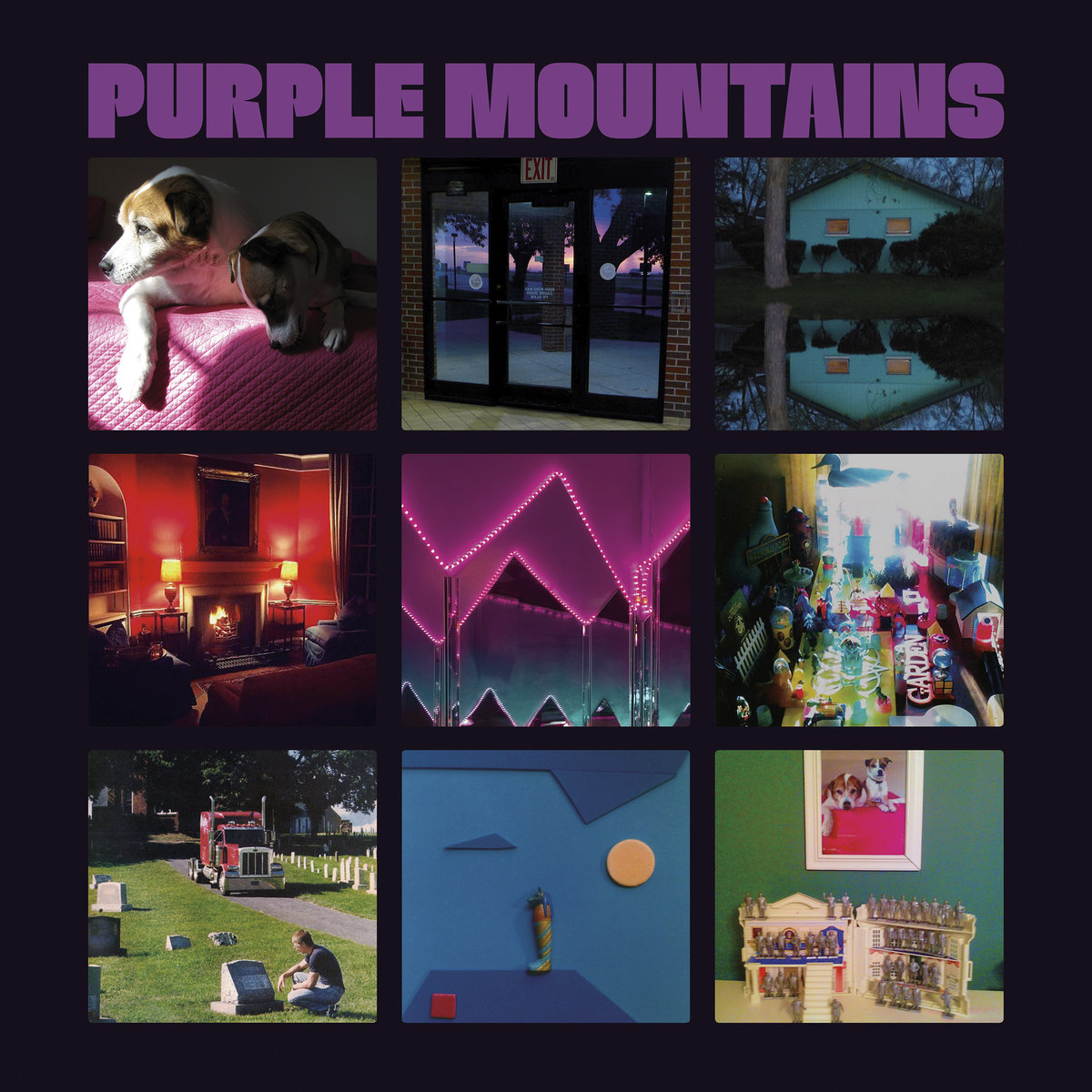
2. Purple Mountains
Purple Mountains
Whenever an artist dies, it’s hard not to read into their latest material for signs of where things went wrong. For the musician-poet David Berman, who died by suicide in August, the messy contours of a life of constant struggle were always in plain sight. His six albums with Silver Jews used Biblical wanderers and hard-drinking cowboys as stand-ins for own estrangement, both from a lobbyist father he once called a “world historical motherf*cking son of a b*tch” and from a world awash in doubt, isolation, and apathy. After an 11-year purported retirement from music, spent giving poetry readings and collecting artful ephemera on his blog, Berman returned a month before his death with Purple Mountains, a new songwriting project and eponymous album that was conspicuously detached from his work with Silver Jews.
Purple Mountains’ songs such “Nights That Won’t Happen” and “All My Happiness Is Gone” flip the camera on the bleary-eyed images of yore, finding new weight in tender self-examination. Drawing from the same sort of spare and solipsistic snapshots that had long defined his poetry, Berman explored the barren intimacy of broken personal relationships. He even wrote a fairly straightforward breakup song. But even at its most distressed, Purple Mountains shares a certain self-effacing, tears-in-your-beer quality with Berman’s earlier work. Songs like the perversely jaunty opener “That’s Just The Way I Feel,” with its droll acknowledgements of a decade spent “playing chicken with oblivion” and the “ceaseless feasts of schadenfreude” that Berman’s foes have enjoyed at his expense, become the blackest sort of tragicomedy in the wake of his death. Whether Berman is stuck on “motivational paralysis” or drinking “Margaritas at the Mall,” his candor about his own situation gives Purple Mountains its harrowing power—even if he can’t help but laugh at himself at the end. —ROB ARCAND
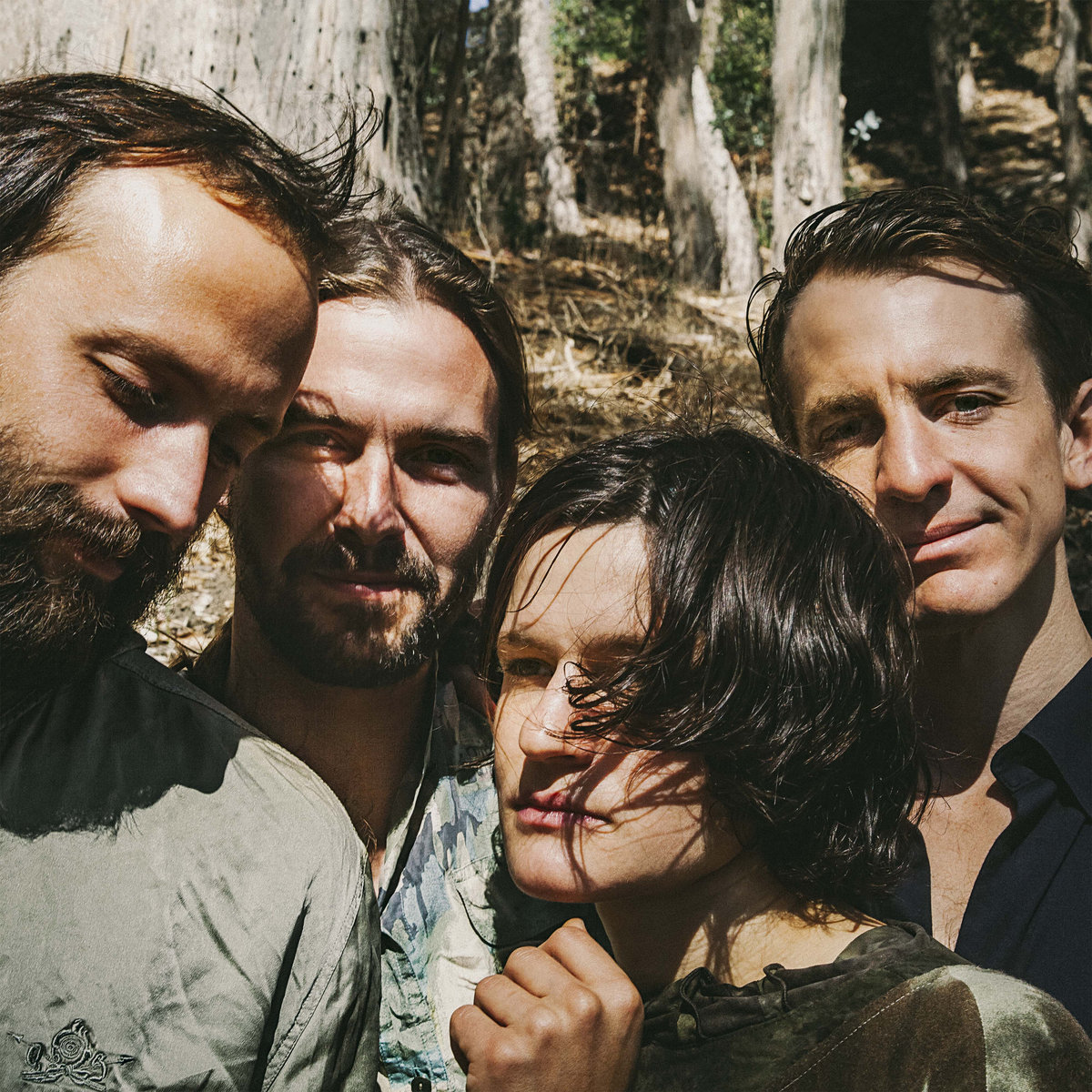
1. Big Thief
Two Hands
The emotional landscape of Two Hands is cracked and raw, as boundless and as fragile as the heart. The album’s predecessor, U.F.O.F., released just months before it, felt comparatively slippery and undefined, as songwriter Adrianne Lenker channeled the immense power of her voice into something like a warm whisper.
Here, the yearning is more palpable, the instrumentation more tactile, and the intimacy more extreme. There’s hurt and healing on a near-geologic scale in her striated warble: images of bodies and plants embedded in “common soil,” and “canyons that catch in your throat.” Channeling Nick Drake on “Wolf,” Lenker traces happiness in naturalistic terms, suggesting that we’re only as close to the earth as we are to each other. An existential chill permeates the title track: “Stone-faced in the light / The air, and the jagged bite / Cold air, the wisdom of the night / Between us.” It’s air that connects us, even when we’ve lost touch with the planet and ourselves. Invigorated by wind, rain, and the promise of refuge, Two Hands is a plea for cosmic recalibration, and for renewed sensitivity toward a world on the brink. —WILL GOTTSEGEN
MORE:

